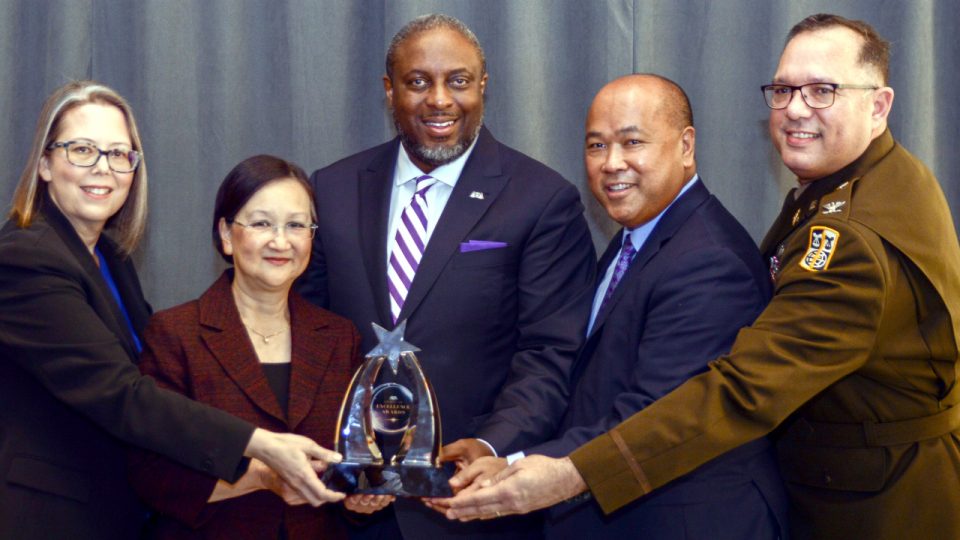
Earlier this month we emailed current and past NJC faculty asking for the most common mistakes they see new judges make and advice on how to avoid them. Submissions began pouring in almost as soon as we hit send.
We had so many, in fact, that we’re going to break them up into installments, in this month’s issue and next. Here are the first 10:
1. They shy away from making decisions
“I have been a judge for 25 years. Over the years I have noticed many new judges have a difficult time making decisions. New judges come from the community and hear cases with their community lawyers. They sometimes are afraid of ruling against community lawyers. They have a hard time coming to grips with a judge’s responsibility to decide, as opposed to not ruling and hoping the case settles if the judge drags his/her feet too long.”
Judge John Lenderman
St. Petersburg, FL
2. They accept every agreed order
“It is very, very tempting to new judges to sign off on agreed orders. For example, the parties will present agreed trial continuances, agreed protective orders that give them carte blanche to seal and redact, agreed briefing schedules, agreed expansions of page limits, plea bargains, and more. The solution to this problem is to not be afraid to say no. Trial date certainty is crucial to justice, and it can only be achieved if the court makes it clear that only good cause will warrant a continuance, and (usually) only once. Similarly, the court has an obligation to provide transparency: sealing and redaction defeats this goal. Nor does the court want to cede control of its calendar, including burying itself in long, late-filed reading, by signing off on parties’ agreement to change the court rules on briefing dates and page limits. And, of course, sentencing discretion is meaningless if the court simply signs off on plea agreements.”
Judge Catherine Shaffer
President, American Judges Association
Seattle
3. They forget to complete the record
“You have three best friends in the courtroom. They are: the record, the record, the record. Your best friends will never turn on you unless you lose your cool. The moral is, keep your cool. It is your courtroom and you get the last say. As long as you make the record, you will be fine.”
Judge Lee Sinclair
Canton, OH
4. They forget about … other important things
“Make sure your robe is on before taking the bench (I’ve been so engaged in thought I marched right into court forgetting my robe.) If you don’t have a court reporter, always double-check to make sure the recorder is on. No one likes to recreate a record.”
Judge Lin Billings Vela
Cripple Creek, CO
5. They don’t go to judge school, and they don’t cut the cord
“I know this will seem self-serving, but many new judges do not take advantage of judicial education programs that will help them get started with the right mindset and skills. It also helps to sever the business and social links between a new judge and his/her former law firm. I remember my presiding judge telling me to get to the NJC during my first year on the bench. I attended General Jurisdiction. After returning, I felt better informed than ever before, and the local attorneys knew I had been through courses that would benefit everyone, including their clients. The professional distance between a new judge and those with whom a law firm connection existed is an important break, and I’ll never regret doing it through the NJC. I’m sure that all of the local lawyers appreciated knowing I was completely independent in my decision-making.”
Judge Jess Clanton
Langley, OK
6. They forget they aren’t a trial attorney anymore
“Stepping into the advocate role is a big mistake for new judges. Another mistake is failing to understand the need to create a full record and the importance of being the “conductor” of the proceedings. Those are just some of the issues we see.”
Judge Susan L. Formaker
Los Angeles
7. They place too much faith in court-appointed experts
“Newly appointed family law judges are often afraid of making mistakes that might harm children – which is important, of course. However, before relying on expert opinions, it is important to understand whether the expert has done a thorough and sufficient job of gathering data. Too often experts seem merely like stenographers who fail to get sufficient depth/breadth in their data gathering. The experts may not have not tested or considered multiple hypotheses before reaching conclusions. They may not have an adequate basis for their opinions or may be otherwise influenced by some type of cognitive or other bias(es). This is especially true when allegations of domestic violence exist in a case, in very high-conflict cases with children who refuse/resist contact with a parent, or in relocation cases.”
Forensic psychologist Philip M. Stahl
Queen Creek, AZ
8. They try too hard to look dignified
“I believe many new judges are so concerned about appearing dignified that they can seem very remote and even uncaring. The solution to this is to learn and apply the lessons of procedural fairness. In reality, there is nothing undignified about being a good listener, a person who explains the neutral principles they are applying, someone who treats each party equally, or someone who speaks in plain language.”
Judge Catherine Shaffer
President, American Judges Association
Seattle
9. They don’t realize that…
1. “It is impossible to have equally talented and prepared attorneys on each side of every case.
2. There will be someone who will file a complaint against a judge, whether justified or not.
3. You will have no privacy. Attorneys as well as citizens expect to know where you are and what you’re doing IF YOU AREN’T IN THE COURTROOM.
4. Depending on type of judgeship, the amount of work will be unexpected. You will be placed on committees and asked to do assignments outside the description of the job.
5. There will rarely be enough time to sit and ponder the law quietly at your desk.
6. There will not be enough money to take a judicial training course outside your state. You should nonetheless volunteer to teach at Continuing Legal Ed classes. And you should know that judges are improved by taking Continuing Judicial Education courses, wherever they are held.”
Judge Cynthia L. Brewer
Canton, MS
10. They misunderstand their position
“Stay away from the phrase ‘In my court…’ It is not your court, it belongs to the people, it will always belong to the people, and you can be replaced.”
So…
“Understand that the case before you is the most important case on the planet, and treat the people before you in that manner. Treat people the way you would want a family member to be treated if they were in court. Do not have ‘POLICIES.’ Have trust in your in-court staff. Listen more than speak. Do not rush your docket, no matter how busy it is. Take frequent breaks. Smile. Dress like a judge. Be humble. Be kind. Never show anger. Never assume anything before asking questions. Do not be afraid to say, ‘I do not know.’”
Judge Louis Schiff
Deerfield Beach, FL

RENO, Nev. (Jan. 26, 2024) — The nation’s oldest, largest and most widely attended school for judges �...

RENO, Nev. (Feb. 7, 2024) — National Judicial College President & CEO Benes Z. Aldana received the Am...

It’s the bear, by a clear majority. A bear to be called Bearister. January’s Question of the Month* ...


Retired attorney Rob Hunter, whose long legal career in Alabama included providing legal representation to ...